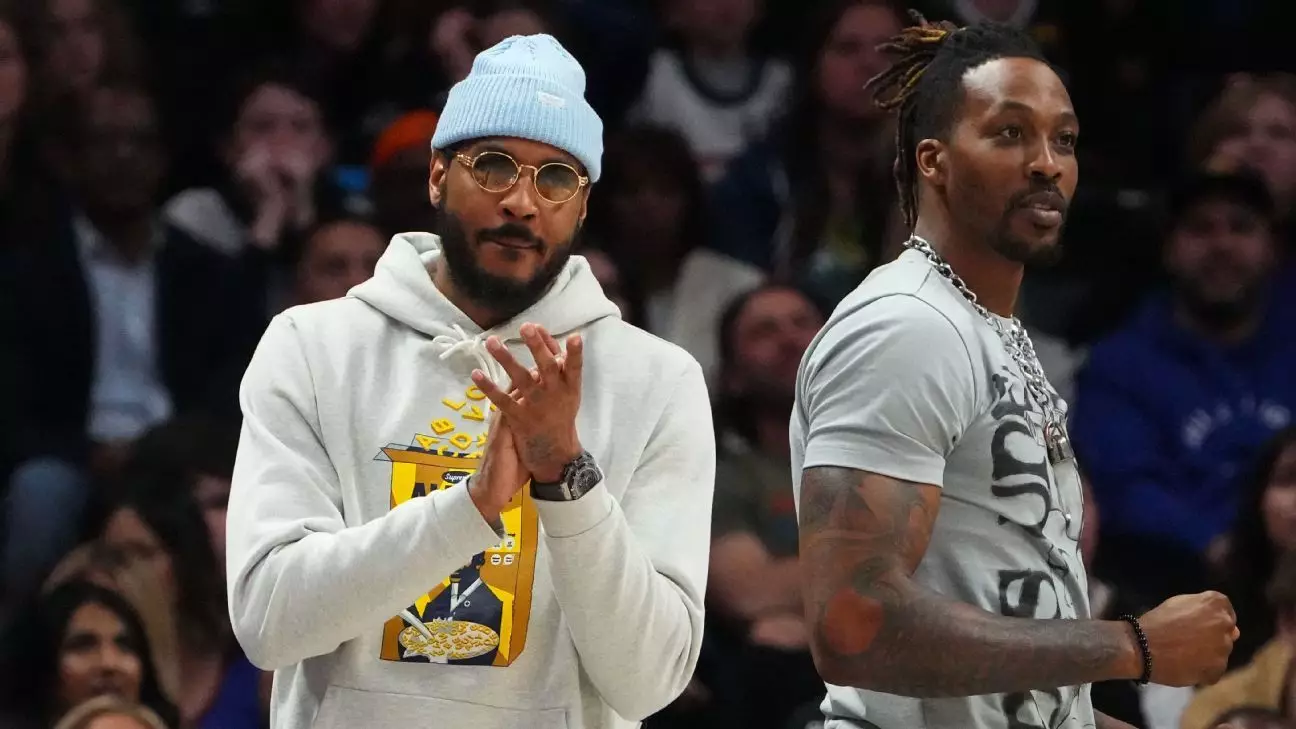The Naismith Basketball Hall of Fame is a prestigious institution that honors the most impactful figures in the game of basketball. As the announcement of the 2024 finalists rolled in, a star-studded lineup emerged, underscoring the evolution and significance of the sport. With names like Carmelo Anthony, Dwight Howard, and legendary women’s basketball figures such as Sue Bird and Maya Moore, this year’s nominees reflect a diverse era of basketball excellence.
Carmelo Anthony’s career is a compelling narrative of talent and achievement. As a 10-time NBA All-Star positioned 10th on the all-time scoring list with 28,289 points, his offensive prowess is undeniable. His collegiate success at Syracuse, culminating in a national championship run in 2003, set the foundation for a prolific professional career. Anthony not only redefined the role of a scoring forward but also brought a unique style and flair to the game. His ability to score from virtually any position on the court continues to inspire aspiring players. With his inclusion in the Hall of Fame discussion, we reflect on the era he shaped and the indelible mark he leaves on the sport.
In stark contrast to Anthony’s offensive focus, Dwight Howard emerged as one of the most dominant defensive players in NBA history. Commanding the paint, Howard’s accolades speak volumes, having secured three consecutive NBA Defensive Player of the Year awards between 2009 and 2011. His presence transformed games, leading to an NBA Finals appearance with the Orlando Magic in 2009 and a championship victory with the Los Angeles Lakers in 2020. Beyond his individual accolades, his ability to impact games defensively has established Howard as a cornerstone of basketball’s defensive evolution, illustrating how pivotal such roles are in building championship-caliber teams.
The Women of the Court: Honoring the Female Pioneers
The inclusion of women’s legends in this year’s class highlights the significant advancements in women’s basketball. Sue Bird, widely regarded as one of the greatest point guards in history, enjoyed an illustrious career marked by two NCAA titles at UConn and four WNBA championships with the Seattle Storm. Alongside her is Maya Moore, whose system-altering play and commitment to social justice set a high bar both on and off the court. Her decision to retire during her prime to pursue criminal justice reform embodies the new generation of athletes who weave their activism into their athletic careers.
Sylvia Fowles also merits recognition as a dominant force in the game. With her powerful interior presence, she guided LSU to numerous Final Fours and achieved remarkable success in the WNBA. Collectively, these women not only showcase skill and talent but also pave the way for a lasting legacy that promotes equity and recognition in sports.
While player accolades often steal the spotlight, coaching deserves its due recognition. Billy Donovan’s tenure at Florida brought unparalleled success, including back-to-back NCAA titles, showcasing his exceptional ability to develop talent and strategy. He transitioned into the NBA, where he continues to cultivate young players with the Oklahoma City Thunder and the Chicago Bulls.
Mark Few stands as a beacon of consistency and success in college basketball with Gonzaga. His impressive winning percentage and multiple national championship game appearances position him as a transformative figure in college coaching. Both coaches exemplify the profound impact that leadership has on the success of their programs and the players’ growth.
The Final Vetting Process
As these finalists await the final selection process, the anticipation builds. A panel of 24 anonymous voters will weigh the merits of each nominee, requiring 18 votes for induction. The final class announcement, slated for April 2025 in San Antonio, will celebrate the contributions of these athletes and coaches to the game’s rich history.
The Hall of Fame serves not only as an acknowledgment of individual and team greatness but as a culture of basketball that inspires future generations. This year’s finalists reflect a diverse array of narratives, demonstrating the multifaceted nature of basketball, and ensuring that the legacy of these legends will endure.

Leave a Reply